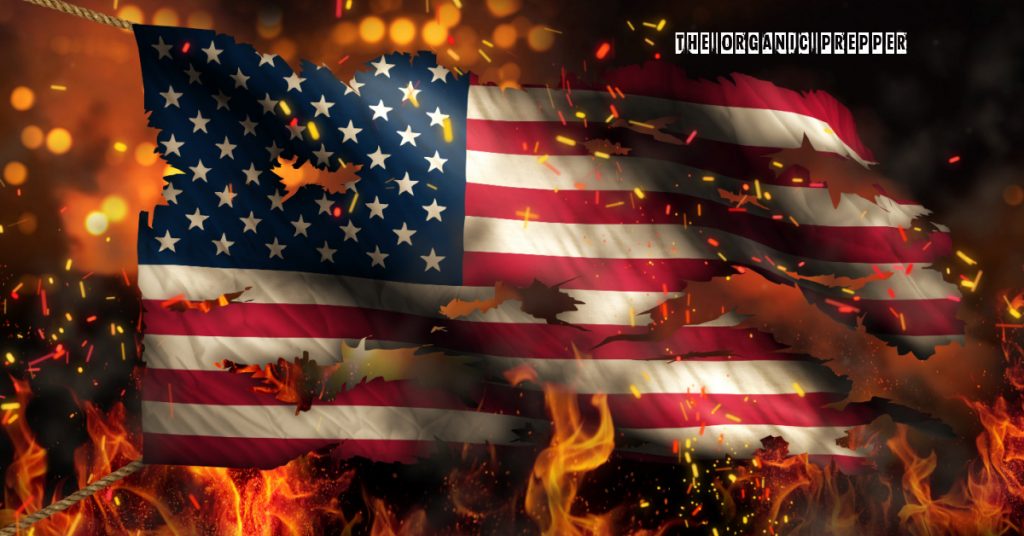by Fabian Ommar, The Organic Prepper:

I frequently seek a distanced opinion on something happening in my neck of the woods. Sometimes, being too close to the action (and relying on local media and experts) can prevent us from having a more accurate, unbiased view of things.
Occasionally, I get asked what I think of a particular event happening in another region. Not because I’m an expert in geopolitics. It’s just people merely seeking an outsider’s opinion on some domestic issue as well.
TRUTH LIVES on at https://sgtreport.tv/
With that in mind, I wanted to address the possibility of the U.S. going into a civil war, why I believe it won’t happen, and what I think is more probable.
The prospect of another civil war permeates the collective American mind.
Or so it seems to this foreigner. It’s expected that this sentiment will surface in times of crisis. However, most people have only a vague idea of how an 1861 replay would happen. Whenever I’m discussing with someone and ask how they envision a civil war in the United States playing out, most replies are vague generalizations like “city vs. rural,” “neighbors vs. neighbors,” or “red vs. blue.”
It’d be foolish to deny that a civil war in the U.S. is possible, and the sentiment is genuine and cannot be overlooked. But the real question is how probable, how likely – not if it’s possible or not.
Without a logical explanation of how a civil conflict would start and unfold in the real world, what form it would take in contemporary America with regards to practical aspects, nor much consideration to other factors and components surrounding it, I can’t see how this idea stands.
A good place to start is a concise definition of “civil war.’”
There are tens of different definitions out there. I’ll stick to the most objective and thorough explanation I could find:
“…a politically orchestrated, widespread, protracted, physically violent battle that takes place within a nation, usually between sizable/statistically significant factions of its residents or citizens over the exclusive use of physical force within the nation… The challengers may want to unseat the rulers with the monopoly of force over the state’s remaining territory, or they may aim to secede from a portion of the original area.” [SOURCE]
Every war is a conflict, but not every conflict is a war.
This distinction is significant because it emphasizes the fundamental differences between particular phenomena. A civil war is a specific event with specific dynamics and duration.
Revolutions, riots, crime waves, and other demonstrations aren’t civil wars. Drug cartels battling each other for power and territory, or a hundred criminal gangs fighting each violently and terrorizing the population and the authorities, are not civil wars.
Some political scientists define civil war by numbers, though 1,000 yearly deaths motivated by religion or race would characterize civil war just as ones caused by politics or civil rights. Besides, everything can be politicized.
So while numbers are important – especially when talking about human lives – assigning political motives to intra-violence may not be as clear-cut in times of generalized turmoil and confusion, when everyone is at each other’s throats for a dozen or more different things.
(Want to know how to starve the beast? Check out our free QUICKSTART Guide.)
America, today.
We can’t ignore the wide gaps and radicalization in politics, civil rights, and also wealth that are currently present, as has been said numerous times (I certainly cannot because the same is happening in my own country).
The genuine concern, though, is whether or not this will result in an actual, full-fledged Civil War on American soil. It’s time to see the reasons why it has a low probability of happening in the foreseeable future:
Read More @ TheOrganicPrepper.ca



